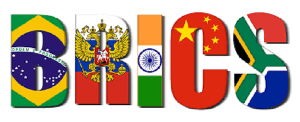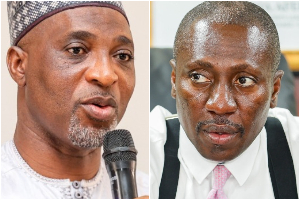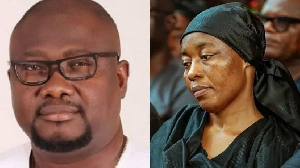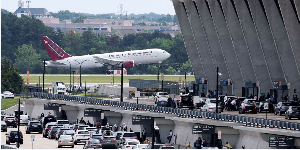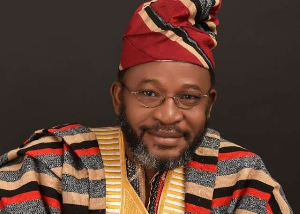Russia hosted the 16th annual BRICS and maiden BRICS+ summit from 22-24 October 2024. BRICS, an acronym for Brazil, Russia, India, China and South Africa represents a geo-political and geo-economic bloc which was birthed in 2006 but held its first summit in 2009 in Yekaterinburg, Russia. South Africa joined the bloc in 2010.
In 2023, following applications for membership, the BRICS extended invitations to Egypt, Ethiopia, Iran, Saudi Arabia and the United Arab Emirates. Accordingly, this 16th Summit was christened BRICS+. Other countries that have also shown interest in the bloc include Algeria, Azerbaijan, Belarus, Indonesia, Malaysia, Mexico, Thailand, Turkey and Vietnam. It’s noteworthy that Saudi Arabia is yet to formally join the bloc.
Held in Kazan, a city south-west of Russia, the summit was conducted under the theme; Strengthening Multilateralism for Just Global Development and Security. The summit agenda included: an exchange of views on current global and regional issues; a discussion of the three dimensions of cooperation (promoted by Russia as Chair) – politics and security, economy and finance, cultural and humanitarian exchange, and the possibility of BRICS expansion through the establishment of a new partnership grouping.
Political leaders who graced the summit included: Chinese President Xi Jinping, Indian Prime Minister Narendra Modi, South Africa’s President Cyril Ramaphosa, UAE President Mohammed bin Zayed Al Nahyan, Iran’s President Masoud Pezeshkian, Egypt’s President Abdel Fattah el-Sisi and Ethiopia’s Prime Minister Abiy Ahmed. Also in attendance was the UN Secretary-General Antonio Guterres.
Primarily, the summit provided Russia with an opportunity to showcase its international ‘friends’. It also demonstrated Russia’s capacity to continuously do business with global players despite the increasing Western-imposed sanctions since its invasion of Ukraine in February 2022. Indeed, Russia appeared to have used the Summit for public relations victory against the West and Ukraine.
Whilst meeting President Xi Jinping on Tuesday (22 Oct.), President Putin said he wanted to strengthen ties with China to bring “greater global stability”. Russia, Putin noted, wants to further increase coordination in all multilateral platforms to ensure global security and a fair world order.
On his part, the Chinese leader praised the relationship between China and Russia, noting that “the world is undergoing profound changes unseen in a century, and that the international situation is chaotic and intertwined”. President Xi averred that China-Russia relations have injected a strong impetus into the development, revitalization and modernization of both countries.
Speaking also to the president of the BRICS New Development Bank, Dilma Rousseff, President Putin said that the use of local currencies instead of the dollar or euro, “helps to keep economic development free from politics as far as possible in the context of today’s world”.
Participants at the summit reiterated the need to enhance BRICS’ solidarity and cooperation based on mutual interest, key priorities and strengthen strategic partnerships. The participants also reaffirmed their commitment to mutual respect, understanding, sovereign equality, solidarity, democracy, inclusiveness, collaboration and consensus building amongst member countries.
Furthermore, participants committed to strengthening cooperation in the expanded BRICS under three pillars: 1) political and security, 2) economy and finance, 3) cultural and people-to-people cooperation and to enhance strategic partnership for the benefit of their citizens. Participants also reiterated the need to promote global peace, ensure more representativeness, fairer international order, strengthen and reform multilateralism, sustainable development and inclusive growth.
The 32-page declaration detailed the bloc’s desire for continuous collaboration on diverse social, economic, political and security facets along four thematic areas:
1. Strengthening multilateralism for a more just and democratic world order:
Participants acknowledged the advent of new centres of power, policy decision-making and economic growth, capable of paving way for a more equitable, democratic and balanced multipolar world. Members reiterated commitment to improve global governance by promoting a more agile, effective, efficient, responsive, legitimate, democratic and accountable international and multilateral system.
They called for greater and more meaningful participation of Emerging Markets and Least Developing Countries (EMDCs) especially in Africa, Latin America and the Caribbeans in global decision-making processes and structures. Members underscored the need for EMDCs to be recognized on global platforms to keep pace with contemporary realities. The bloc also called for reforms of the United Nations including its Security Council to ensure enhanced representativeness, democratic culture, efficient and effective use of limited global resources.
2. Enhancing Cooperation for global and regional stability and security:
Participants strongly supported an enhanced BRICS+ dialogue on policy and security issues, expressing deep worrying trends about the rise of violence and continuing armed conflicts in parts of the world. BRICS+ members expressed profound concerns over conflict with potential regional and global implications, noting that the situation in the Middle East and North Africa was conspicuously concerning.
The bloc thus underscored the need for peaceful resolution of disputes through diplomacy, mediation, inclusive dialogue and consultation, adding that respect for international humanitarian laws in conflict situations ought to be always upheld by all.
3. Fostering economic and financial cooperation for a just global development:
Summit participants reiterated their belief in multilateral cooperation to limit or avert the potential risks that may be caused by geo-political and geo-economic fragmentation. Consequently, BRICS+ members committed to intensify areas of mutual interest including trade, reducing poverty and hunger. Other areas of mutual interest were the commitment to sustainable development in energy, water, food, fuel, fertilizer, education, health, among others.
Participants also noted the high debt levels of some member countries and expressed concern about the implications for fiscal space and social development. Nonetheless, members welcomed BRICS’ interbank cooperation mechanism focusing on facilitating and expanding innovative financial practice for projects and programmes, praising the potential and inherent prospects and benefits.
Participants reiterated their commitment to enhance financial cooperation for wider benefits and reminded developed countries to honour their pledge to the USD 100 million mobilization by 2020 through 2025 for support to fight climate change.
4. Strengthening People-to-People exchange for social and economic development:
Participants reaffirmed the importance of membership exchange programmes to enhance mutual understanding, friendship, and cooperation which will potentially enrich society and develop members’ economies. Members stressed the need for enhanced commitment to international cooperation in education, science and culture, communication and information, in line with contemporary realities.
They reiterated the need to further develop youth exchanges in critical areas: education, skills development, science and technology, entrepreneurship, health, sports, community services, volunteering and inter-parliamentary exchanges.
Implications of BRICS+
The participation of 36 countries in the 16th BRICS summit is clearly groundbreaking. This can present a source of anxiety to the West, primarily because of what appears to be an accelerating worldwide fragmentation. As a group, the BRICS+ represents an important global constituency, boasting of at least half of the world’s population, about 40+ percent global trade and 40+ percent crude oil production and exports. Indeed, BRICS commands about 32 percent of the world’s Gross Domestic Product (GDP) and about 30 percent of the G7 group.
The BRICS partners evidently want to reduce the US dominance in the financial system especially the use of the US dollar and the SWIFT system – an international network financial transaction platform. SWIFT means Society for Worldwide Interbank Financial Telecommunication.
The expansion of BRICS seems to demonstrate a growing global discontent with, and a determination to challenge the structural leverage advanced market democracies are enjoying in the global arrangement. Reducing the privileges and creating parallel institutions will thus appear to be the fundamental purposes of the BRICS+.
It's noteworthy that since 2022, Russia has been cut off from the SWIFT system thereby affecting its international transactions. The Western-imposed sanctions on Russia have alarmed many developing countries who are worried that the West could weaponise global financial tools against them.
In 2023, Brazil proposed a trading currency although experts have concerns about its sustainability. Many have expressed doubt about its viability due to infrastructural challenges and global acceptability. Nonetheless, China has an alternative to the SWIFT system but limited in use. Significantly, many are working on using national currencies for bilateral trade to cut the dependence on the use of the dollar.
Future uncertainties may persist. BRICS+ members will continue to invest further efforts towards self-reliance. Suffice it to state that the bloc is presently heavy on symbolism as opposed to substance. Heterogeneity of the group may cause difficulties for unified policies, especially in relation to other global bodies such as the G 20 group. The risk of ideological cohesion is also an apparent reality.
The group’s achievements are somewhat mixed. In 2015, BRICS established two new multilateral institutions: the New Development Bank and the Contingent Reserve Arrangement to compete with the World Bank and International Monetary Fund. The New Development Bank, for instance, remains under-capitalized. Whilst the prospects of future and deepened engagements of the group are feasible, there are obvious challenges, and more work is needed. Future configuration(s) of the global power arrangements will thus continue to attract attention.
Opinions of Monday, 28 October 2024
Columnist: Alhaji (Dr.) Aminu Shittu

